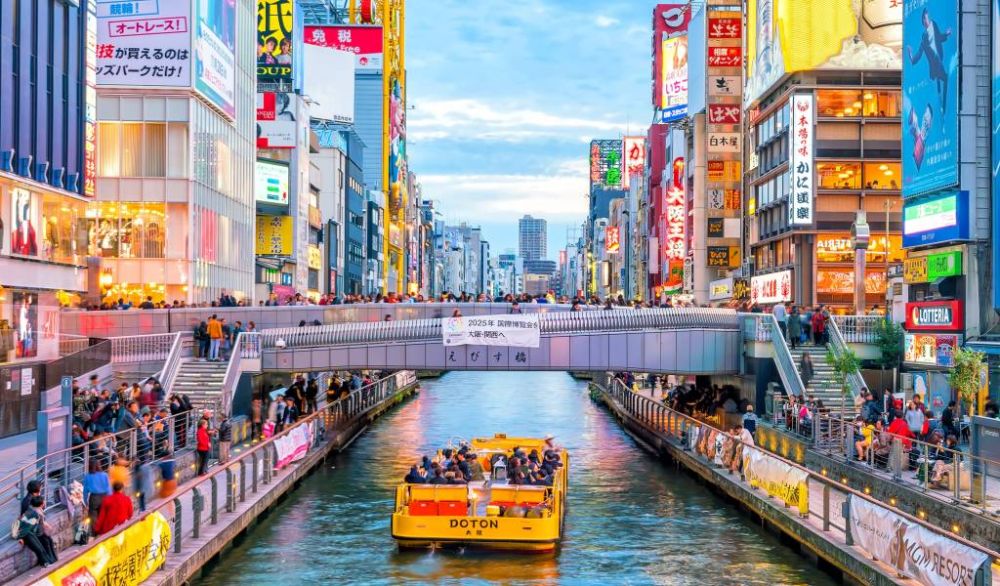

Osaka's vibrant entertainment district, Dotonbori, has a rich history that dates back to the early 1600s. Initially, it was established as a theater district with a number of playhouses and kabuki theaters. Over time, it developed into a popular destination for both local and foreign visitors drawn by its lively atmosphere and cultural offerings.
The area's tourism gained momentum in the Edo Period when merchant Yasui Doton invested in the project to expand the Umezu River in 1612 aiming to enhance commerce in the region. Although he passed away before the project's completion, it was later finished by his cousins and renamed Dotonbori, or the "Doton Canal," in his honor.
Throughout the centuries, Dotonbori became synonymous with bright neon lights, extravagant signage, and an abundance of street food vendors. It achieved iconic status with the development of its famous mechanical signboards, known as Kani Doraku's giant crab and the Glico Man running track sign, both of which are emblematic representations of the area.
In the late 20th century, tourism evolved further with the rise of the Japanese economy, making international travel to Japan more accessible. Dotonbori's plethora of shops, restaurants, and entertainment options made it a must-visit locale in the Kansai region. The introduction of major shopping complexes and the Michelin Guide awarding stars to high-end restaurants in Osaka only heightened its appeal.
Throwing light on the latest tourism trends, Dotonbori has adapted to embrace the era of experiences and social media. Visitors often flock to this dynamic district to capture the perfect Instagram shot with the iconic Glico Man sign or to relish the flavors of local street food like takoyaki and okonomiyaki.
Experiential dining and shopping have become key trends, with tourists seeking unique, intimate experiences in addition to the high-energy attractions. For instance, chef-led tours and cooking classes that delve into Osakan cuisine offer a deeper cultural immersion. Additionally, the rise of sustainable tourism has led to a greater interest in local practices and a push towards supporting small businesses and the environment.
Furthermore, the sharing economy has seen a boon in the district, with platforms like Airbnb and experiential travel companies offering unique stays and local experiences, expanding Dotonbori's appeal beyond the main thoroughfares to the neighboring vicinities.
Finally, the recent global circumstances surrounding travel have begun to shift the focus towards domestic tourism, with Dotonbori leveraging its status as a culinary hotspot and cultural hub to attract a new wave of local visitors exploring their own backyard. Amid the challenges, Dotonbori continues to innovate to maintain its lure for future tourists, both domestic and international.